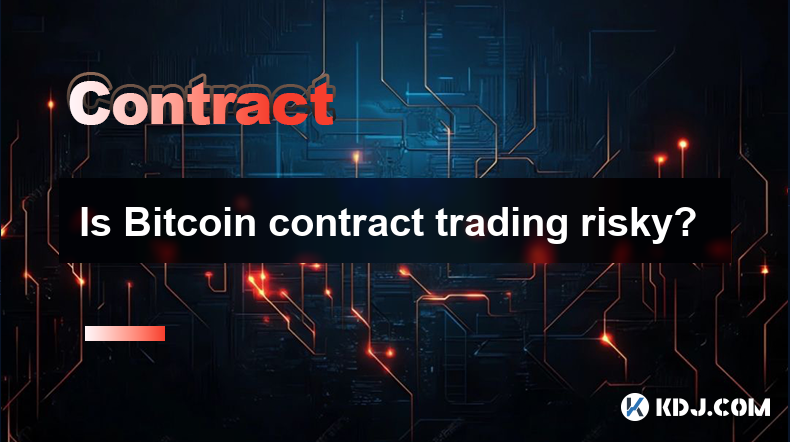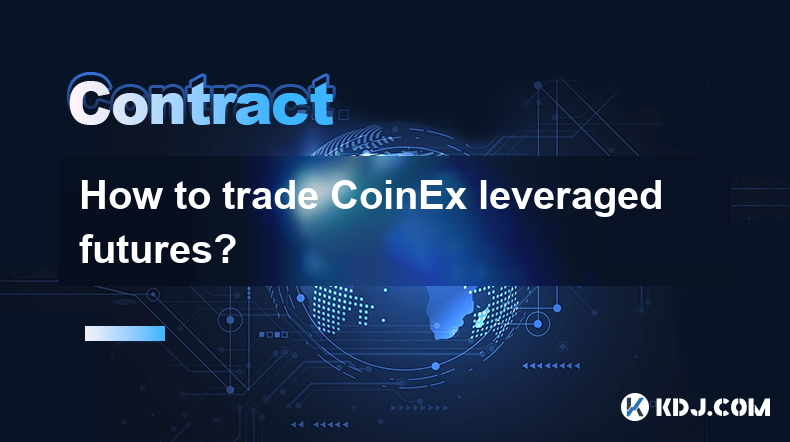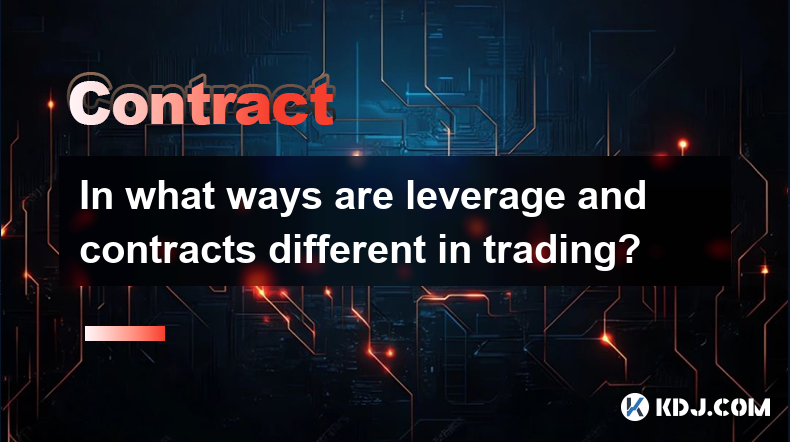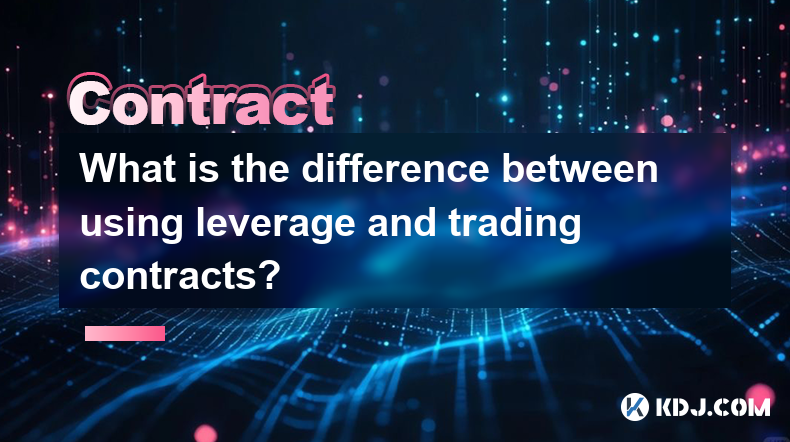-
 Bitcoin
Bitcoin $83,255.2836
-2.28% -
 Ethereum
Ethereum $1,821.6270
-4.98% -
 Tether USDt
Tether USDt $0.9997
-0.02% -
 XRP
XRP $2.0300
-5.62% -
 BNB
BNB $592.2419
-3.00% -
 Solana
Solana $121.1432
-4.53% -
 USDC
USDC $0.9998
-0.01% -
 Dogecoin
Dogecoin $0.1649
-5.26% -
 Cardano
Cardano $0.6493
-4.64% -
 TRON
TRON $0.2344
-0.97% -
 Toncoin
Toncoin $3.9186
-3.26% -
 UNUS SED LEO
UNUS SED LEO $9.3843
1.32% -
 Chainlink
Chainlink $13.0875
-7.63% -
 Stellar
Stellar $0.2581
-5.40% -
 Avalanche
Avalanche $18.3472
-6.91% -
 Sui
Sui $2.2957
-5.79% -
 Shiba Inu
Shiba Inu $0.0...01215
-4.50% -
 Hedera
Hedera $0.1623
-5.09% -
 Litecoin
Litecoin $82.9416
-2.41% -
 Polkadot
Polkadot $4.0027
-4.37% -
 MANTRA
MANTRA $6.1965
-1.88% -
 Bitcoin Cash
Bitcoin Cash $296.1636
-4.49% -
 Bitget Token
Bitget Token $4.5300
-2.20% -
 Dai
Dai $0.9998
-0.04% -
 Ethena USDe
Ethena USDe $0.9998
-0.02% -
 Pi
Pi $0.6552
-7.64% -
 Hyperliquid
Hyperliquid $12.3484
-7.49% -
 Monero
Monero $216.8009
-0.80% -
 Uniswap
Uniswap $5.9283
-6.22% -
 Aptos
Aptos $5.1281
-5.57%
Is Bitcoin contract trading risky?
Bitcoin contract trading's high leverage and Bitcoin's volatility create substantial risk, potentially leading to rapid losses and liquidation. Understanding margin calls, employing stop-loss orders, and choosing a reputable exchange are crucial for mitigating these dangers.
Feb 28, 2025 at 02:00 am

Is Bitcoin Contract Trading Risky? A Deep Dive into the Perils and Potential
Key Points:
- High Leverage: Contract trading allows for significant leverage, magnifying both profits and losses exponentially. Understanding leverage and its implications is crucial for mitigating risk.
- Volatility: Bitcoin's inherent price volatility significantly increases the risk associated with contract trading. Sudden price swings can lead to substantial losses even with careful risk management.
- Liquidation: The risk of liquidation, where your position is automatically closed due to insufficient margin, is ever-present. Understanding margin calls and managing your position size is paramount.
- Complexity: Contract trading involves complex strategies and market mechanics. A lack of understanding can easily lead to costly mistakes.
- Exchange Risks: The reliability and security of the exchange you choose are critical factors affecting your risk exposure. Choosing a reputable and secure platform is essential.
- Regulatory Uncertainty: The regulatory landscape surrounding cryptocurrency trading is still evolving, introducing additional uncertainty and potential risks.
Understanding the High Leverage Risks in Bitcoin Contract Trading
- Bitcoin contract trading offers the allure of high leverage, allowing traders to control a significantly larger position than their actual capital would permit. For example, a 10x leverage allows a trader to control $10,000 worth of Bitcoin with only $1,000 in their account. While this amplifies potential profits, it also magnifies losses proportionally. A 1% adverse price movement with 10x leverage translates to a 10% loss of your initial capital. This can lead to rapid and substantial losses, potentially wiping out your entire trading account in a short period. Many novice traders are drawn to the high leverage offered, believing it's a shortcut to riches. However, this is a misconception. The higher the leverage, the higher the risk, and the more crucial it is to have a sophisticated understanding of risk management techniques. This includes setting appropriate stop-loss orders to limit potential losses, employing position sizing strategies to control exposure, and diversifying your portfolio to reduce reliance on any single trade. Furthermore, traders should carefully consider their risk tolerance before engaging in leveraged trading. Only trade with funds you can afford to lose entirely, and never borrow money to trade contracts. Emotional decision-making is a significant contributor to losses in leveraged trading. Therefore, developing a disciplined trading plan and adhering to it rigorously is crucial. This plan should include clear entry and exit strategies, risk management protocols, and a defined risk tolerance level. Regularly reviewing and adjusting the trading plan based on market conditions and personal experience is also essential. The temptation to chase quick profits can lead to impulsive decisions and ultimately significant losses.
The Impact of Bitcoin's Volatility on Contract Trading Risk
- Bitcoin is known for its extreme price volatility, experiencing significant price swings in short periods. This inherent volatility presents a substantial risk for contract traders. Even with careful planning, unexpected market movements can quickly lead to substantial losses. A sudden price drop can trigger a margin call, forcing the liquidation of your position at an unfavorable price. This can happen even if your initial analysis seemed sound, highlighting the unpredictable nature of the cryptocurrency market. Therefore, understanding the factors that influence Bitcoin's price is crucial for mitigating this risk. Keeping abreast of market news, regulatory changes, technological developments, and macroeconomic factors can help you anticipate potential price fluctuations. However, even with thorough research, predicting the market with certainty is impossible. Therefore, a robust risk management strategy is paramount. This includes utilizing stop-loss orders to limit potential losses, diversifying your portfolio to reduce exposure to any single asset, and adhering to a strict position sizing strategy. It's essential to recognize that even the most experienced traders can experience losses due to Bitcoin's volatility. Accepting this inherent risk and developing strategies to manage it is a crucial aspect of successful contract trading. The psychological impact of volatility can be significant. Fear and greed can cloud judgment, leading to impulsive decisions that can be detrimental to your trading performance. Developing emotional resilience and adhering to a disciplined trading plan is vital to navigate these challenging market conditions effectively. Furthermore, understanding technical analysis tools and indicators can provide insights into potential price movements, but it's essential to remember that these tools are not foolproof.
Navigating the Perils of Liquidation in Bitcoin Contract Trading
- Liquidation is a critical risk in Bitcoin contract trading. When using leverage, your exchange requires you to maintain a certain level of margin – the collateral securing your position. If the market moves against your position and your margin falls below a predetermined threshold (the maintenance margin), the exchange will issue a margin call. This is a warning that your position is at risk of liquidation. If you fail to deposit additional funds to meet the margin requirement within a specified time frame, the exchange will automatically close your position to cover its losses. This liquidation happens at the prevailing market price, often resulting in significant losses, especially during periods of high volatility. The speed at which liquidation can occur can be astonishing, leaving little time to react. Understanding the mechanics of liquidation is crucial to mitigate this risk. Thoroughly reviewing your exchange's margin requirements and liquidation policies is the first step. This information is typically available in the exchange's terms and conditions. Careful position sizing is vital to reduce the likelihood of liquidation. Avoid over-leveraging your trades, and always leave a substantial buffer between your margin and the maintenance margin. Using stop-loss orders can help limit potential losses and prevent liquidation, but it's important to understand that slippage (the difference between the expected and executed price) can occur, especially during periods of high volatility. Monitoring your positions closely and responding promptly to margin calls is also crucial. This requires constant vigilance and a deep understanding of the market dynamics. Furthermore, diversification of your portfolio across multiple assets can help reduce the impact of a single position being liquidated. The emotional impact of liquidation can be substantial. It's important to treat each trade as an independent event and avoid letting losses affect future trading decisions. Maintaining a disciplined and unemotional approach is essential for long-term success in contract trading.
The Complexity of Bitcoin Contract Trading and its Associated Risks
- Bitcoin contract trading involves complex strategies and market mechanics that require a thorough understanding to navigate successfully. Unlike spot trading where you directly buy and hold Bitcoin, contract trading involves predicting price movements and profiting from the difference between the entry and exit prices. This requires a strong grasp of technical analysis, market fundamentals, and risk management principles. Understanding concepts like leverage, margin, liquidation, and order types is crucial. Many traders, especially beginners, underestimate the complexity of contract trading and jump in without sufficient knowledge, leading to significant losses. The various order types, such as limit orders, market orders, stop-loss orders, and take-profit orders, each have their own nuances and implications. Understanding how to use these order types effectively is crucial for managing risk and executing trades successfully. Furthermore, the use of technical indicators, such as moving averages, RSI, MACD, and Bollinger Bands, requires a deep understanding of their interpretation and limitations. Misinterpreting these indicators can lead to incorrect trading decisions and significant losses. The learning curve for contract trading is steep, and it requires dedicated effort and continuous learning. Utilizing educational resources, such as online courses, webinars, and trading communities, can help build the necessary knowledge and skills. However, it’s crucial to be discerning about the information sources you use, as not all information is accurate or reliable. Furthermore, developing a strong understanding of market psychology is essential. Understanding how market sentiment, news events, and other factors can influence price movements is crucial for making informed trading decisions. The complexities of contract trading require patience, discipline, and a commitment to continuous learning. Rushing into trades without a solid understanding of the underlying mechanics is a recipe for disaster.
Assessing and Mitigating Exchange-Related Risks in Bitcoin Contract Trading
- The choice of exchange plays a crucial role in mitigating the risks associated with Bitcoin contract trading. Reputable exchanges provide a secure and reliable platform for trading, while less reputable exchanges may pose significant risks. Security breaches, platform downtime, and even outright scams are potential threats. Choosing a regulated and well-established exchange is paramount. Researching the exchange's history, reputation, security measures, and regulatory compliance is crucial before depositing any funds. Look for exchanges with robust security protocols, including two-factor authentication (2FA), cold storage for user funds, and regular security audits. Read reviews and testimonials from other users to get an understanding of their experiences with the exchange. The exchange's customer support services should also be a factor in your decision-making process. Responsive and helpful customer support can be invaluable in resolving any issues or concerns that may arise. Consider the exchange's trading fees and other charges. High fees can significantly impact your profitability, so comparing fees across different exchanges is recommended. The liquidity of the exchange is also important. High liquidity ensures that you can easily enter and exit trades without significant slippage. A less liquid exchange may make it difficult to execute trades at your desired price, leading to potential losses. Regularly reviewing and updating your security practices is essential. This includes using strong and unique passwords, enabling 2FA, and being vigilant against phishing scams. Understanding the exchange's terms and conditions, including its policies on liquidation, margin calls, and dispute resolution, is also crucial. By carefully selecting a reputable exchange and implementing robust security practices, you can significantly reduce the exchange-related risks associated with Bitcoin contract trading.
Navigating the Regulatory Uncertainty in Bitcoin Contract Trading
- The regulatory landscape surrounding cryptocurrencies is constantly evolving, and this uncertainty adds another layer of risk to Bitcoin contract trading. Different jurisdictions have varying regulations, and these regulations can change rapidly. This can impact your ability to trade, access your funds, and even face legal consequences. Understanding the regulatory environment in your jurisdiction is crucial. Research the applicable laws and regulations concerning cryptocurrency trading in your location. This includes understanding tax implications, KYC/AML requirements, and any restrictions on leveraged trading. Staying informed about regulatory developments is essential. Following news and updates from regulatory bodies and industry associations can help you anticipate potential changes and their impact on your trading activities. However, it's important to remember that the interpretation and enforcement of regulations can vary, and seeking legal advice from a qualified professional is recommended. The lack of a universally harmonized regulatory framework across different jurisdictions adds complexity. Trading across borders can expose you to different regulatory regimes, potentially increasing compliance risks. Therefore, understanding the regulatory landscape of each jurisdiction you're trading in is crucial. The evolving nature of regulations means that the rules and guidelines governing cryptocurrency trading can change without much notice. This requires constant vigilance and a willingness to adapt to the changing regulatory environment. It’s also important to choose exchanges that comply with relevant regulations in your jurisdiction. This reduces the risk of facing legal issues or losing access to your funds due to regulatory non-compliance. Regularly reviewing your trading practices and ensuring compliance with the latest regulations is crucial to mitigate the risks associated with regulatory uncertainty.
FAQs
Q: What is the biggest risk in Bitcoin contract trading?
A: The biggest risk is the potential for significant losses due to the combination of high leverage and Bitcoin's inherent price volatility. A small price movement against your position can quickly lead to substantial losses, even liquidation of your entire account.
Q: How can I minimize the risk of liquidation?
A: Minimize the risk of liquidation by using lower leverage, employing stop-loss orders, carefully managing your position size, and diligently monitoring your margin levels. Understanding and adhering to your exchange's margin requirements is also crucial.
Q: Is Bitcoin contract trading suitable for beginners?
A: No, Bitcoin contract trading is generally not recommended for beginners due to its complexity and high risk. It requires a solid understanding of trading principles, risk management, and market dynamics. Beginners should focus on learning the fundamentals before venturing into leveraged trading.
Q: What are the benefits of using leverage in Bitcoin contract trading?
A: Leverage allows you to control larger positions with a smaller amount of capital, potentially amplifying your profits. However, this also magnifies your losses proportionally. The benefits should be weighed carefully against the increased risk.
Q: How do I choose a safe and reliable exchange for Bitcoin contract trading?
A: Choose a regulated exchange with a strong reputation, robust security measures (including 2FA and cold storage), high liquidity, and responsive customer support. Research the exchange thoroughly and read reviews before depositing any funds.
Q: What is the role of regulatory uncertainty in Bitcoin contract trading risk?
A: Regulatory uncertainty introduces significant risk as the rules and regulations governing cryptocurrency trading are still evolving and differ across jurisdictions. This can affect your ability to trade, access your funds, and potentially expose you to legal issues. Staying informed about regulatory changes is essential.
Q: Can I recover losses from liquidation?
A: Once a position is liquidated, the loss is generally final. There's no mechanism to automatically recover those funds. Careful risk management and responsible trading practices are crucial to avoid such situations.
Q: What is the best strategy to avoid losses in Bitcoin contract trading?
A: There is no guaranteed strategy to avoid losses. However, minimizing risk involves thorough research, understanding market dynamics, employing effective risk management techniques (stop-loss orders, position sizing), using appropriate leverage, and choosing a reputable exchange. Continuous learning and adapting to market conditions are also vital.
Disclaimer:info@kdj.com
The information provided is not trading advice. kdj.com does not assume any responsibility for any investments made based on the information provided in this article. Cryptocurrencies are highly volatile and it is highly recommended that you invest with caution after thorough research!
If you believe that the content used on this website infringes your copyright, please contact us immediately (info@kdj.com) and we will delete it promptly.
- Bitcoin (BTC) Price Prediction: Will BTC Break Out Above $86,000 to Signal the Start of a Recovery?
- 2025-04-03 07:05:12
- Recent market activity shows a split in altcoin performance.
- 2025-04-03 07:05:12
- Publicly Traded Businesses Continuously Buying Bitcoin ($BTC) to Demonstrate Its Emerging Significance
- 2025-04-03 07:00:14
- Credefi Launches Its NFT Bonds Product on the Polytrade Marketplace
- 2025-04-03 07:00:14
- What If the Next Big Crypto Boom Isn't in Bitcoin or Ethereum—but in Meme Coins?
- 2025-04-03 06:55:13
- Despite Price Drop, Shibarium Network Processes Over 1 Billion Transactions
- 2025-04-03 06:55:13
Related knowledge

How to trade CoinEx leveraged futures?
Apr 03,2025 at 03:56am
Trading leveraged futures on CoinEx can be an exciting way to potentially amplify your profits in the cryptocurrency market. Leveraged futures allow traders to borrow funds to increase their trading position, which can lead to higher returns, but also comes with increased risk. In this article, we will guide you through the process of trading CoinEx lev...

What are the risks of KuCoin futures trading?
Apr 03,2025 at 01:14am
KuCoin futures trading offers traders the opportunity to speculate on the future price of cryptocurrencies, but it comes with its own set of risks that traders need to be aware of. Understanding these risks is crucial for anyone looking to engage in futures trading on the KuCoin platform. This article will delve into the various risks associated with Ku...

What is the Getting Started Guide for Bybit Futures Trading?
Apr 03,2025 at 12:42am
Bybit is a popular cryptocurrency exchange that offers futures trading, allowing users to speculate on the price movements of various cryptocurrencies. If you're new to Bybit futures trading, this guide will walk you through the essential steps to get started. From setting up your account to understanding the basics of futures trading, we'll cover every...

In what ways are leverage and contracts different in trading?
Apr 03,2025 at 03:42am
Leverage and contracts are two fundamental concepts in cryptocurrency trading that, while related, serve different purposes and have distinct characteristics. Understanding the differences between them is crucial for any trader looking to navigate the volatile crypto markets effectively. This article will delve into the specifics of leverage and contrac...

What is the difference between using leverage and trading contracts?
Apr 03,2025 at 05:21am
Leverage and trading contracts are two common terms in the cryptocurrency trading world, each with distinct features and implications. Leverage allows traders to increase their exposure to a cryptocurrency by borrowing funds from a broker. This can amplify both potential profits and losses. On the other hand, trading contracts, such as futures and optio...

how to find bitcoin contract address
Mar 22,2025 at 05:07pm
How to Find a Bitcoin Contract Address: A Deep DiveFinding a Bitcoin contract address requires understanding that Bitcoin itself doesn't inherently support smart contracts like Ethereum. The concept of a "contract address" is fundamentally tied to blockchain platforms with smart contract functionality. Therefore, searching for a Bitcoin contract address...

How to trade CoinEx leveraged futures?
Apr 03,2025 at 03:56am
Trading leveraged futures on CoinEx can be an exciting way to potentially amplify your profits in the cryptocurrency market. Leveraged futures allow traders to borrow funds to increase their trading position, which can lead to higher returns, but also comes with increased risk. In this article, we will guide you through the process of trading CoinEx lev...

What are the risks of KuCoin futures trading?
Apr 03,2025 at 01:14am
KuCoin futures trading offers traders the opportunity to speculate on the future price of cryptocurrencies, but it comes with its own set of risks that traders need to be aware of. Understanding these risks is crucial for anyone looking to engage in futures trading on the KuCoin platform. This article will delve into the various risks associated with Ku...

What is the Getting Started Guide for Bybit Futures Trading?
Apr 03,2025 at 12:42am
Bybit is a popular cryptocurrency exchange that offers futures trading, allowing users to speculate on the price movements of various cryptocurrencies. If you're new to Bybit futures trading, this guide will walk you through the essential steps to get started. From setting up your account to understanding the basics of futures trading, we'll cover every...

In what ways are leverage and contracts different in trading?
Apr 03,2025 at 03:42am
Leverage and contracts are two fundamental concepts in cryptocurrency trading that, while related, serve different purposes and have distinct characteristics. Understanding the differences between them is crucial for any trader looking to navigate the volatile crypto markets effectively. This article will delve into the specifics of leverage and contrac...

What is the difference between using leverage and trading contracts?
Apr 03,2025 at 05:21am
Leverage and trading contracts are two common terms in the cryptocurrency trading world, each with distinct features and implications. Leverage allows traders to increase their exposure to a cryptocurrency by borrowing funds from a broker. This can amplify both potential profits and losses. On the other hand, trading contracts, such as futures and optio...

how to find bitcoin contract address
Mar 22,2025 at 05:07pm
How to Find a Bitcoin Contract Address: A Deep DiveFinding a Bitcoin contract address requires understanding that Bitcoin itself doesn't inherently support smart contracts like Ethereum. The concept of a "contract address" is fundamentally tied to blockchain platforms with smart contract functionality. Therefore, searching for a Bitcoin contract address...
See all articles
























































































